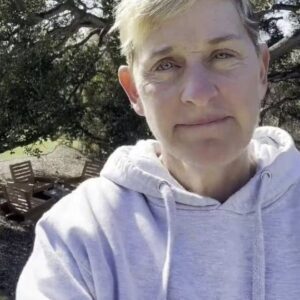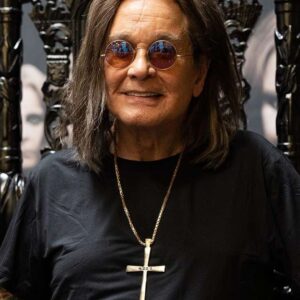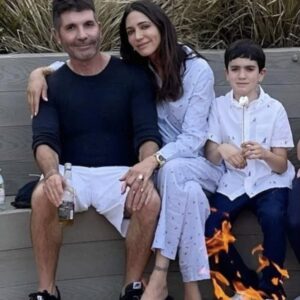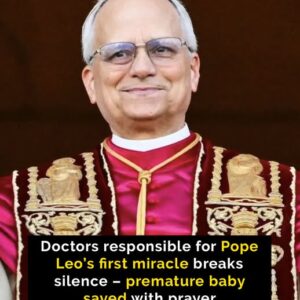I came home to my dad’s place after a year away. He was happy, but the bathroom sink barely worked—pipes clogged. I asked why he hadn’t fixed it; he just shrugged. When I tried, he stopped me without explaining. Weeks passed, brushing my teeth in the kitchen drove me crazy. So when he went out, I took the pipes apart—and was stunned when I found a small velvet pouch stuffed deep inside the U-bend.
It was soaked and slimy, but inside were three old, glittering rings. They looked expensive, like antique family heirlooms. My first thought was: why the hell would Dad hide these in the bathroom pipes? I laid them out on a towel, staring at them as my hands shook. When he came home and saw me holding them, he froze like I’d pulled a gun.
“Dad, what are these?” I demanded. He looked at the rings like they were cursed. “They’re your mother’s,” he whispered. “I thought they were lost.” But something about his tone felt off—more scared than relieved.
I pressed him for answers. He claimed Mom had sold the rings before she died, but I was old enough to remember Mom crying the night before she left us. She was clutching those same rings then. His story made no sense. When I threatened to take them to a jeweler to check if they were stolen, he broke down.
He admitted he’d pawned the rings behind Mom’s back to pay off a gambling debt. He bought them back years later but couldn’t face giving them to me—he thought I’d hate him forever. So he hid them. It was like he’d carried this secret like an anchor all these years. I couldn’t believe he’d rather let the sink rot than risk the truth coming out.
I didn’t know what to say. Part of me was furious—he’d let his pride and shame keep these memories locked away. Another part felt sorry for him. He was a lonely man, trying to do right in the wrongest ways possible.
I took the rings to a local jeweler to get them cleaned. The jeweler recognized them immediately. “These belonged to Aurelia Donnellan, didn’t they?” he asked, naming my mother. She was a well-known artist in our town before she passed. It was like the rings carried a piece of her spirit. The jeweler told me they were worth far more than I thought, both in money and sentiment.
That night, Dad and I sat across from each other, the rings polished and glinting on the table. He told me about the gambling: a single weekend that spiraled into threats from some shady loan shark named Desmond. He swore he never gambled again. He’d spent years hiding his mistake, letting guilt gnaw him from the inside. I realized I hadn’t really known my father at all.
He looked so small sitting there, eyes glassy with regret. I reached across the table, took his hand, and said I forgave him. He broke into tears. It was the first time I’d seen him cry since Mom’s funeral.
Over the next few days, I noticed Dad was different. He smiled more. He started fixing things around the house—small repairs he’d let fall apart. I think he felt lighter, like telling me unshackled him. We tackled the kitchen faucet together, then patched the hole in the hallway ceiling. It was the first time in years we worked side by side without awkward silence.
One afternoon, I decided to wear one of Mom’s rings on a chain around my neck. Dad saw it and asked to hold it. He turned it over in his hands like it was the most precious thing in the world, then looked at me with a mix of pride and sorrow. “Your mother would be so proud of you,” he whispered.
Just when things started feeling almost normal, I got a call from a woman named Sabina. She said she’d seen me wearing Mom’s ring at the coffee shop. She claimed Mom had promised her that ring before she died. I was stunned—Mom never mentioned Sabina to me. She insisted they were best friends. She begged me to meet.
When we met at a diner, Sabina showed me photos of her and Mom together, arms around each other, laughing. It was undeniable. She told me Mom had confided everything about Dad’s gambling. She even showed me a letter Mom had written, saying if anything happened to her, Sabina should get the rings. The date on the letter was three days before Mom left us.
My head spun. Had Mom planned to leave Dad for good? Why hadn’t she taken the rings? Or had Dad stopped her somehow? I went home and confronted him. He insisted Mom never planned to leave—that she’d had a breakdown, and he’d tried to help her, but she ran off into the night.
Sabina said otherwise: Mom had packed bags and called her to pick her up, but Sabina never made it in time. Mom disappeared and was found days later in a river. Authorities ruled it an accident, but Sabina always suspected Dad knew more. I felt like the floor vanished under me.
Dad swore on his life he didn’t hurt Mom. He said he searched for her for days, and the guilt of pawning her rings was punishment enough. But doubt crept into me. Memories resurfaced: late-night shouting, doors slamming, Mom crying in the dark. I started questioning everything I thought I knew about my childhood.
Determined to find the truth, I went through Mom’s old journals stored in a box in the attic. In the last entries, she wrote about feeling trapped, scared of Dad’s temper, worried he’d do something drastic if she left. She also wrote about meeting a lawyer to start divorce proceedings. None of it matched Dad’s version.
I felt betrayed beyond words. How could Dad lie to me all these years? Yet part of me wondered if he was telling half the truth. What if he’d tried to stop her from leaving but never meant harm? Was it possible her death was truly accidental? Or did his rage push things too far?
I took the journals to Sabina. She read them with tears streaming down her face. She told me Mom deserved better than what she got. But she also urged me to find closure, not let bitterness poison my life like it did Dad’s. She gave me one final piece of the puzzle: Mom’s lawyer’s name.
I visited him. He was old but remembered my mother well. He said Mom was desperate to leave Dad but afraid for me. He claimed she planned to get custody, worried Dad’s anger would fall on me if she left. He never heard from her after that last call.
I returned home in turmoil. Dad was waiting at the kitchen table, the rings before him. “I know you’ve been digging,” he said softly. I nodded. We sat in silence, two broken people in a house full of ghosts. Finally, he spoke: “I never laid a hand on her. I swear. But I didn’t fight hard enough to help her, either.”
He said he tried to stop her from leaving, begged her to stay. He admitted he yelled, grabbed her arm. She ran out into the storm, and that was the last he saw of her alive. He’d blamed himself every day since.
I wanted to hate him. Part of me did. But I also saw the lonely man he’d become, punishing himself for decades. It didn’t excuse anything, but it explained everything.
We decided together to hold a memorial for Mom, inviting Sabina and the few friends who still remembered her. We shared stories, both good and bad. It was painful, but healing. At the end, I placed her rings on the riverbank where she was found, letting the current carry them away. It felt like letting her—and the past—finally rest.
Dad and I started rebuilding. We talked about everything: the mistakes, the regrets, the love that was still there, however flawed. He even apologized for letting pride and shame ruin what little we had left of Mom. I told him I’d never forget but I was ready to forgive.
In the months after, Dad started volunteering at a local shelter, helping families in crisis. He said it was his way of honoring Mom’s memory, turning his pain into something good. I saw him laugh with kids there, his eyes lighter than I’d ever seen. It was like he finally found peace.
As for me, I moved back home for a while. I kept Mom’s journals, reading them when I missed her. I also met Sabina often; we grew close, bound by our love for the same woman. She told me stories about Mom I’d never heard—how she dreamed of opening an art gallery, how she used to dance barefoot in the rain. It made me feel like I got a piece of her back.
One day, while walking by the river, I realized I no longer felt angry. I felt grateful: grateful for the truth, even if it hurt; grateful for the chance to forgive; grateful to know Mom loved me enough to try to protect me. I knew she’d want me to live fully, not stay stuck in the past.
Dad and I still have our moments. Sometimes we argue, sometimes we cry. But mostly, we talk. We don’t let silence build walls anymore. We tell each other the hard things, knowing honesty is the only way forward.
If there’s one thing I learned, it’s that secrets rot families from the inside, like rust in old pipes. Facing the truth is scary, but it’s the only way to break the cycle. And forgiveness, though hard, frees everyone involved.
So here I am, sharing this story, hoping it helps someone else see that the past doesn’t have to define the future. We can always choose to face our mistakes, forgive, and build something better.
If you read this far, please like and share it—someone out there might need to hear it today. ❤️





